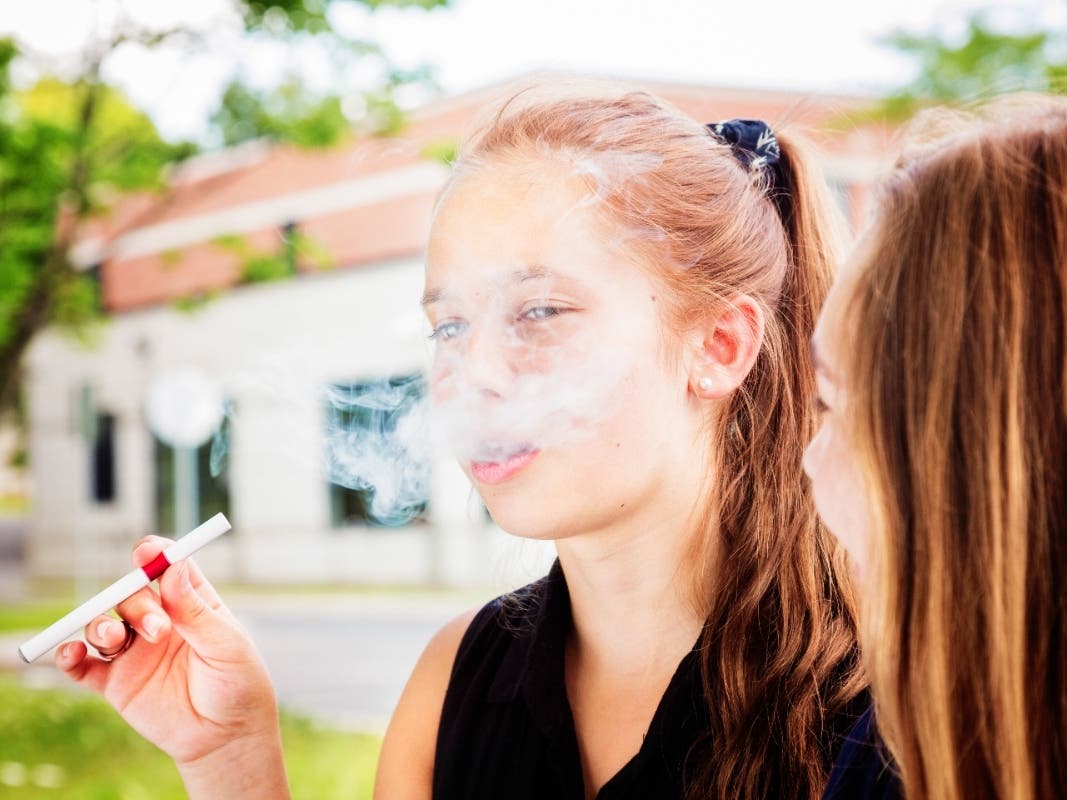Politics & Government
What Is Proposition 31, CA’s Flavored Tobacco Ban Referendum?
A vote for Prop 31 would allow California to enact its ban on the sale of most flavored tobacco products.

CALIFORNIA — A California law banning the sale of flavored tobacco products in stores and vending machines passed in 2020 but was placed on hold when a referendum initiated by the tobacco industry qualified for the 2022 ballot. Now, the issue is being put to the voters. Proposition 31 essentially asks voters: should the ban go into effect? A yes vote would uphold the ban. A no-vote would kill it.
Senate Bill 793, which bans the sale of flavored tobacco products and flavor enhancers, was approved by the legislature in 2020. It carves out exceptions for hookah and loose-leaf tobacco and premium cigars. Retailers caught selling flavored tobacco face $250 for each violation.
The bill is designed to combat the epidemic of teen tobacco use - namely vaping flavored tobacco. The bill’s author State Sen. Jerry Hill accused tobacco companies of luring children into addiction with candy and fruit-flavored products.
Find out what's happening in Los Angeleswith free, real-time updates from Patch.
"California fought Big Tobacco and won," Hill told the Los Angeles Times. "This shameless industry is a sore loser and it is relentless. It wants to keep killing people with its candy-, fruit-, mint- and menthol-flavored poison. The adults who are hooked on nicotine aren’t enough for Big Tobacco; it wants our kids too."
Other supporters of the ban include Gov. Gavin Newsom and the California Teacher’s Association.
According to the Legislative Analyst’s Office, the ban would mean the loss 0f millions in tax revenue largely used to support health programs.
Find out what's happening in Los Angeleswith free, real-time updates from Patch.
“Proposition 31 likely would reduce state tobacco tax revenues by an amount ranging from tens of millions of dollars to around $100 million annually,” the independent analysts concluded.
The group behind the referendum, which includes Philip Morris USA, Inc. the Republican Party of California, argues that the ban is unnecessary and overbroad. It deprives adult users of vape pens and e-cigarettes of the flavors they enjoy, argue opponents of the ban.
“Banning the sale of FDA-authorized alternatives to adult cigarette smokers will cause serious and lasting damage to tobacco harm reduction goals and potentially increase California’s rising budget deficit during COVID-19,” the industry group California Coalition for Fairness said in a written statement. “(The ban) criminalizes the sale of menthol cigarettes preferred by people of color and creates special exemptions for products preferred by the wealthy—allowing the sale of expensive flavored cigars and pipe tobacco, in addition to hookah, to remain legal.”
The No on Proposition 31 campaign, which is funded by tobacco companies, raised almost $23 million and spent almost $23 million by the end of September, according to Ballotpedia.
The Yes on Proposition 31 campaign, which is funded by Michael R. Bloomberg, Kaiser Foundation Health Plan, Inc. The American Cancer Society Cancer Action Network, Inc. and the American Heart and Lung associations, raised almost $6.2 million and spent almost $4.5 million in that same time frame.
According to a poll conducted by the Berkeley Institute of Governmental Studies in September, 57 percent of respondents favor a flavored tobacco ban.
Get more local news delivered straight to your inbox. Sign up for free Patch newsletters and alerts.